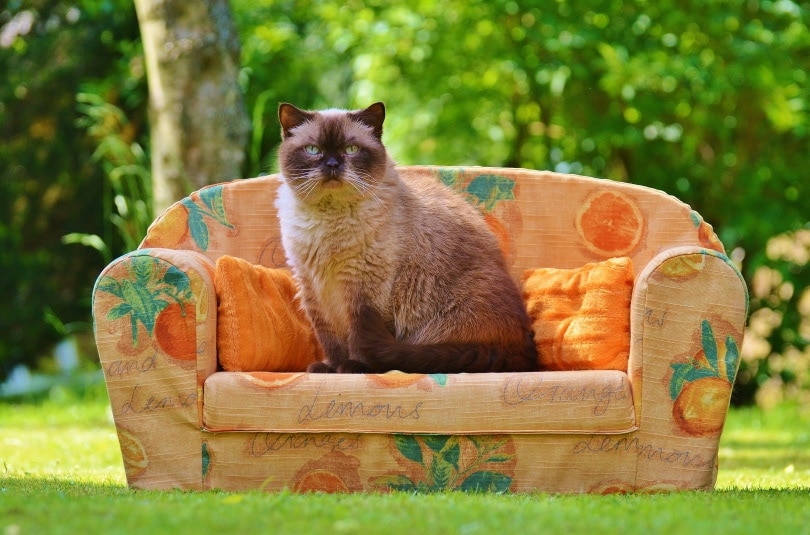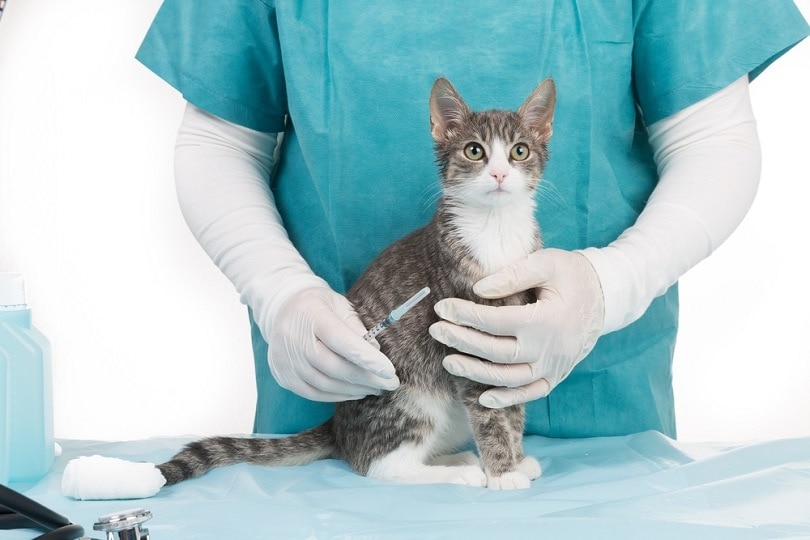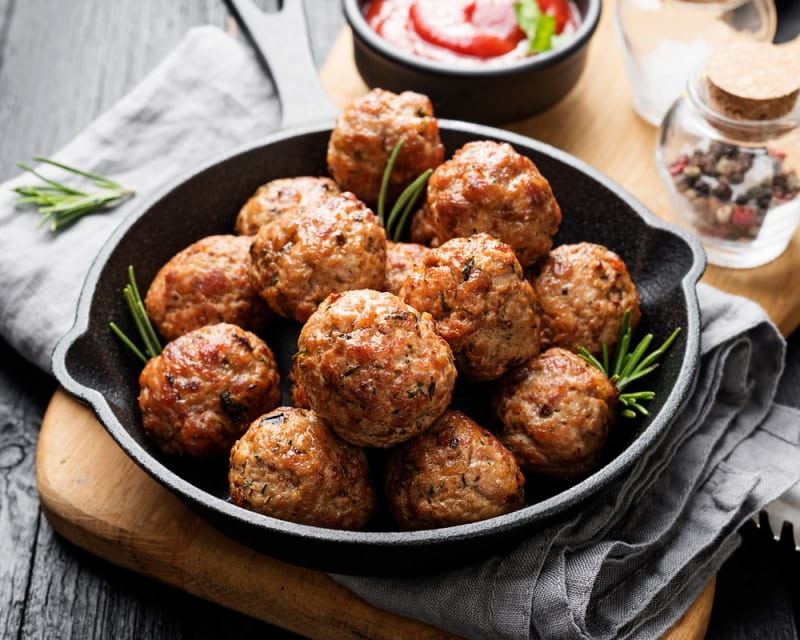Garlic Toxicity in Cats: Vet Reviewed Signs & Treatments
Updated on
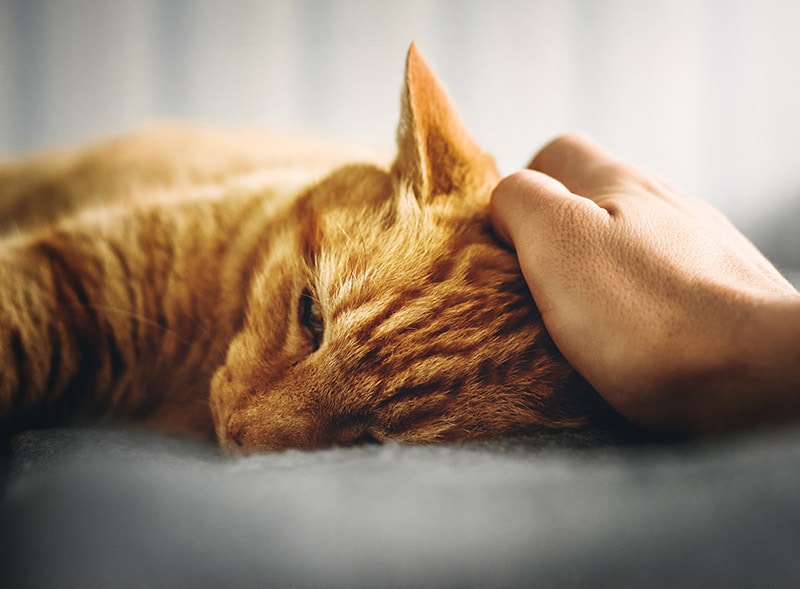
Click to Skip Ahead
Garlic is a bulbous vegetable belonging to the Allium genus, which includes other bulbous vegetables like onions, shallots, scallions, leeks, and chives. Garlic is likely in every household cupboard and adds flavor when cooking, but unfortunately, garlic is toxic to cats, dogs, and possibly horses. As a cat owner, it’s crucial to keep garlic, in any form, put away and out of reach from your cat, especially cats that love to counter surf.
In this post, we’ll discuss garlic toxicity, the signs of garlic toxicity in cats, and what you should do if your cat ingests garlic.
What Is Garlic Toxicity?
Garlic toxicity involves the ingestion of garlic in any form: cloves, powder, salt, and minced/jarred. Garlic can also be found in ingredients from prepackaged food items. Garlic contains chemicals called sodium n-propyl thiosulfate that can damage red blood cells in cats and dogs. The affected red blood cells become fragile and rupture, which can make them rupture and lose their ability to carry oxygen effectively to vital organs, in a process called hemolysis. Hemolysis leads to anemia, which ultimately causes the lack of red blood cells to carry oxygen to vital organs. If the vital organs do not receive adequate oxygen, death could be the result.
Garlic is considered 5 times more toxic than onions to cats, and it doesn’t take much garlic to cause severe complications and even death in cats if ingested. Garlic is extremely potent, and cats are typically small in size, which is why ingestion for cats is particularly dangerous. To put into perspective, a 10–12 pound cat that ingests one small clove of garlic can suffer severe toxicity—it also only takes ½ teaspoon of minced garlic and 1/8 teaspoon of garlic powder to cause severe toxicity in cats.
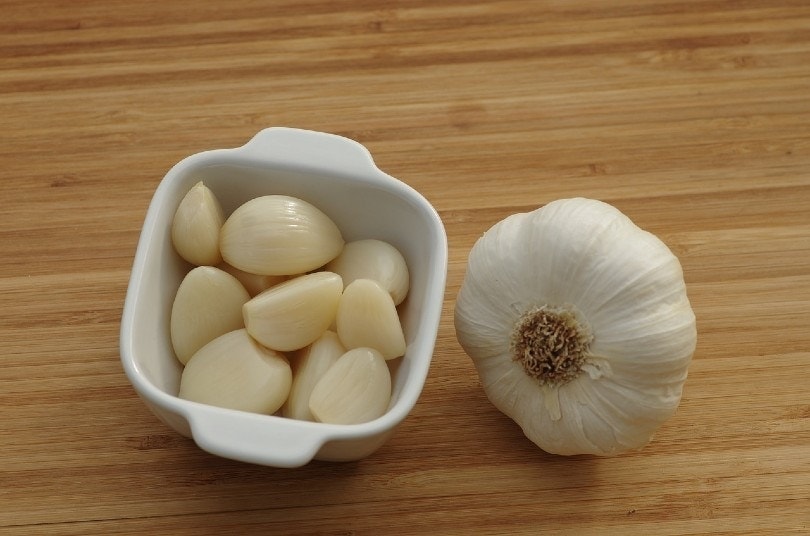
What Are the Signs of Garlic Toxicity in Cats?
It’s vital to understand the signs of possible garlic toxicity in your cat so you know when to seek veterinary treatment immediately. Signs may develop as early as 1 day but bear in mind that it could take a few days for signs to appear. It’s extremely important to familiarize yourself with the signs of garlic toxicity in case your cat shows signs of illness and you have no prior knowledge of your cat getting into garlic.
- Vomiting
- Diarrhea
- Abdominal pain
- Excessive drooling/salivation
- Garlic smell emitting from breath
- Decreased or loss of appetite
- Lethargy/weakness
- Pale gums of white, pink, or yellow
- Increased heart rate
- Increases respiratory rate
- Collapse
What Are the Causes of Garlic Toxicity in Cats?
Now that you know garlic is toxic to cats, keeping garlic in any form out of reach from your cat is vital to his health. Some people may leave garlic cloves in a basket on the kitchen counter for easy access while cooking with other similar items, such as onions or shallots (which are toxic to cats in their own right), but if you’re a cat owner, you must keep these items put away—even after cooking, you must clean your countertop to remove any presence of garlic in any form, especially if your cat is a counter surfer—remember it only takes ½ teaspoon of minced garlic and 1/8 teaspoon of garlic powder to cause potential toxicity in cats.
Garlic cloves are not the only form that is toxic to your cat.
- Jarred/minced
- Powder form
- Salt form
- Cloves
- Prepackaged foods
Garlic should never be included in your cat’s diet. If you let your cat have a nibble of human food, ensure you read the ingredients first to verify there is no garlic in the food, especially prepackaged foods. Cats are different from dogs in that they typically do not like human foods as much, but every cat is different, and if your kitty likes a nibble of whatever you’re having from time to time, make sure no garlic is present.
How Do I Care for a Cat with Garlic Toxicity?
The first and most crucial step is to take your cat to the vet immediately if you suspect he ate garlic in any form—do not wait until symptoms arise—the quicker the treatment, the better the outcome. You can also contact the Pet Poison Helpline or the ASPCA Animal Poison Control Center for immediate assistance.
In order to make a definitive diagnosis, especially in events where you’re not sure if your cat ingested garlic but suspect it, your veterinarian will gather your cat’s history, observe clinical signs, and sometimes retrieve a blood sample for microscopic examination.
Your veterinarian may implement induced vomiting if your cat ingests garlic within 2 hours, although this procedure is not ideal and can be difficult and unsafe for your cat. In some cases, your veterinarian may administer activated charcoal, also known as the “universal antidote,” in an effort to bind additional toxins in your cat’s stomach. Hospitalization may be required in severe cases where IV fluids and/or a blood transfusion are necessary.
It is not advised to care for your cat on your own if you suspect he ingested garlic in any form—such incidents require treatment from a licensed veterinarian. We should note that most cats make a complete recovery with mild ingestion and usually do not suffer long-term complications.
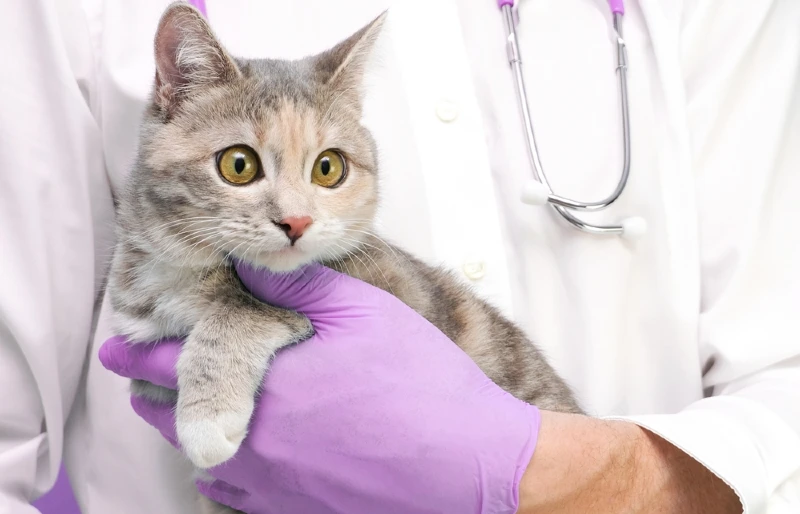
Frequently Asked Questions (FAQ)
Is Cooked Garlic As Toxic?
Yes, cooked garlic is just as toxic as raw garlic. Some believe that the toxins will be lessened or non-existent by cooking garlic, but this is false and should be avoided.
Does Pet Insurance Cover Garlic Toxicity Treatment?
Most pet insurance companies have an accident and illness plan that will cover the treatment related to garlic toxicity, which could save you hundreds, if not thousands, of dollars. Most companies allow you to customize your plan to fit your budget needs, such as choosing the deductible amount, reimbursement rates, and annual payouts, all of which adjust your monthly premiums.

Final Thoughts
Garlic toxicity in cats should be taken seriously—even a tiny amount can cause serious complications. Cats with mild cases can make a full recovery with prompt treatment without suffering long-term complications. However, severe cases could result in death if not treated immediately. The best way to keep your cat safe is through prevention, as prevention is key to keeping your cat safe from any form of toxicity.
Remember to keep garlic put away in a secure area your cat cannot access and be sure to clean your countertops thoroughly after cooking with garlic in any form.
Featured Image Credit: Alexander Andrews, Unsplash


